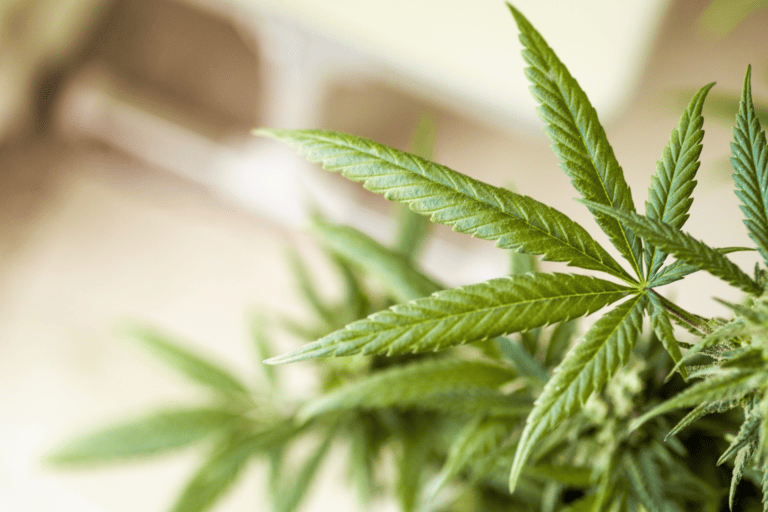Gout
Can medical marijuana help with symptoms of Gout? Read on to learn more below.
What is Gout?
Gout is a complex and common form of inflammatory arthritis that is extremely painful and can affect anyone. It’s defined by sudden, severe attacks of pain, swelling, redness, and joint tenderness, often the big toe.
A gout attack can occur quickly, often waking you up in the middle of the night with tingly and warm sensations in the big toe. The affected joint is typically hot, swollen, and tender to the touch. Gout symptoms are on and off, but there are ways to manage and prevent flare-ups.
Symptoms
These are the primary symptoms caused by Gout:
- Pain, tenderness, swelling, or stiffness in the joints that lasts longer than six weeks.
- Morning stiffness that lasts longer than thirty minutes
- Inflammation of blood vessels can damage the nerves, skin, and other organs.
- Swelling or warmth near joints caused by inflammation
- Weight gain due to lack of exercise caused by joint pain.
- Limited Range of Motion
Risk Factors
Several genetic and environmental factors may increase the risk of developing gout; they include the following:
- Age. The onset of gout is high among adults over 60, especially those with heart failure or diabetes.
- Early Life. Some early life exposures can increase the risk of developing gout in adulthood.
- Genetics. People with specific genes are more likely to develop gout.
- Menopause. Women who have gone through menopause may be at greater risk of developing gout.
- Obesity. Being obese can increase the risk of developing gout.
- Sex. Gout is typically two-to-three times higher in women than men.
- Smoking. Cigarette smoking can increase the risk of developing RA and worsen the disease.
Diagnosis
A doctor can diagnose gout using medical history, a physical examination, and lab results. The doctor will ask about joint symptoms when they started, if they come and go, how severe they are, what actions make them better or worse, and any family history of arthritis. Then, the doctor will typically examine the body for joint tenderness, swelling, and other gout signs. Blood tests can also look for inflammation and antibodies linked to gout. An X-ray, ultrasound, or MRI scan can look for declines in joints and bones once gout has advanced past the early stage.
Other types of arthritis
There are four other primary types of arthritis.
Rheumatoid Arthritis
Rheumatoid arthritis is a chronic autoimmune and inflammatory disorder affecting various body systems, including the joints, skin, eyes, lungs, heart, and blood vessels. An autoimmune disease occurs when your immune system mistakenly attacks the body’s healthy cells and tissues.
Rheumatoid arthritis causes painful inflammation/ swelling in the affected body parts. RA primarily attacks the joints in the hands, wrists, and knees. This tissue damage can cause long-lasting symptoms like chronic pain, instability, and deformity.
Osteoarthritis
Osteoarthritis is the most common form of arthritis and can be passed on genetically. It is also known as degenerative joint disease or “wear and tear” arthritis and is caused when the joint cartilage breaks down, and the bone begins to change. It typically occurs in the hands, hips, and knees and causes pain, stiffness, swelling, and a decreased range of motion. It can reduce the daily quality of life and lead to permanent disability.
Fibromyalgia
Fibromyalgia is categorized as abnormal pain processing that causes pain and stiffness all over the body and tingling in the hands and feet. Other symptoms include fatigue, depression, anxiety, sleep problems; digestive issues, headaches; and slowed cognitive ability.
Childhood Arthritis
Childhood arthritis can cause permanent damage to joints. The most common type is juvenile idiopathic arthritis (JIA); although there is no cure, it can go into remission. Patients typically experience joint pain, swelling, stiffness, fever, rash, fatigue, loss of appetite, and eye inflammation. The cause of childhood arthritis is unknown, but it is connected to autoimmune deficiencies.
Can medical cannabis help?
A 2019 Danish study focused on THC and its usefulness for treating rheumatoid arthritis and ankylosing spondylitis, both chronic inflammatory diseases. The results of this study found that patients saw improvement after twelve weeks and improved quality of life after twenty-four weeks.
Cannabis and Cannabinoid Research has a 2021 review that concluded medical cannabis works through CB1, CB2, and TRPV2 receptors to help control the immune response in patients with autoimmune diseases.
Medical cannabis has many benefits for patients with various autoimmune diseases. THC, CBD, CBN, and more have anti-inflammatory and immune healing properties that could help as an alternative therapy option. The cannabinoids found in the cannabis plant can activate the endocannabinoid system in the human body and may help many chronic issues.
Cannabis activates CB1 receptors in the central nervous system and CB2 receptors in organs, muscles, and tissues. Cannabinoids can directly influence our ability to maintain homeostasis. We recommend discussing medical cannabis with a trusted healthcare provider before changing your gout treatment plan.
Last Updated: August 5, 2024
Get Your Medical Card
Connect with a licensed physician online in minutes
Table of Contents
Keep Reading
-
How Medical Marijuana and CBD Affect Post-Traumatic Stress Disorder (PTSD)
If you or someone you love suffers from PTSD, medical marijuana may be a helpful treatment option. Learn more about how cannabis can help ease symptoms of PTSD.
-
Examining The Physical Effects Of Medical Marijuana Use
Unveiling the Eye-Opening Physical Effects of Medical Marijuana Use. Get ready to be amazed by its impact on your body. Click here to explore!
-
Understanding Cannabis Cultivation Laws: What You Need To Know
Stay informed about cannabis cultivation laws with this comprehensive guide. Learn everything you need to know and stay ahead of the game. Don’t miss out, click here now!



